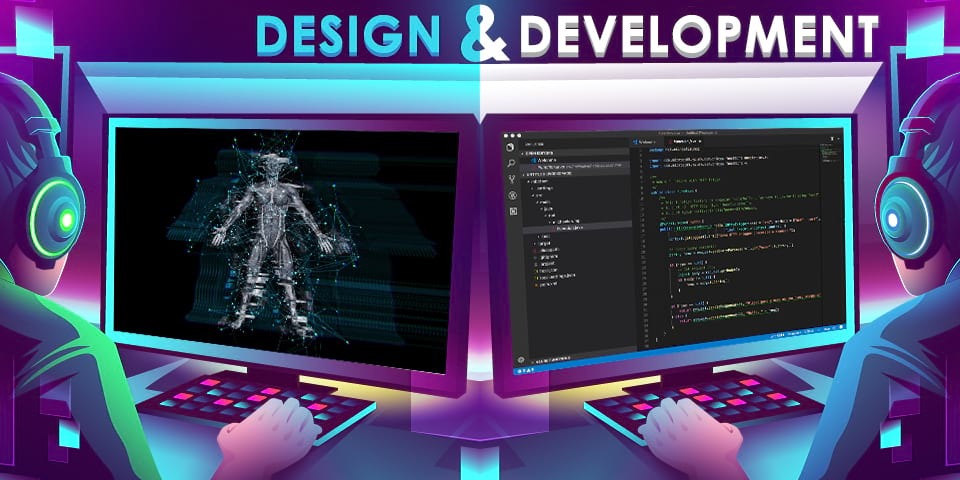Game development is the art and science of creating video games. It involves a complex process that combines programming, design, and artistic skills to bring interactive experiences to life.
Core Disciplines of Game Development
- Game Design:
- Defines the game’s core mechanics, rules, and overall concept.
- Creates game narratives, characters, and level design.
- Balances gameplay elements to ensure a satisfying experience.
- Programming:
- Develops the game’s underlying code and logic.
- Implements game mechanics, AI, and physics.
- Optimizes performance and resolves technical issues.
- Art and Animation:
- Creates visual assets, such as characters, environments, and objects.
- Develops animations and visual effects.
- Ensures visual consistency and style.
- Sound Design and Music:
- Creates sound effects and music to enhance the game’s atmosphere and immersion.
- Designs sound cues to provide feedback to the player.
- Creates a memorable and immersive audio experience.
Game Development Process
- Pre-Production:
- Concept development and brainstorming.
- Game design document creation.
- Prototyping and testing.
- Production:
- Asset creation (art, sound, and code).
- Level design and world-building.
- Gameplay implementation and testing.
- Post-Production:
- Bug testing and fixing.
- Optimization for performance and compatibility.
- Quality assurance testing.
- Release:
- Launching the game on various platforms.
- Marketing and promotion.
Game Engines
Game engines are powerful software tools that provide a framework for game development. Popular game engines include:
- Unity: A versatile engine used for both 2D and 3D games.
- Unreal Engine: A high-end engine used for creating visually stunning games.
- Godot: A free and open-source engine, popular for indie game development.
The Future of Game Development
The future of game development is exciting, with advancements in technology driving innovation. Some emerging trends include:
- Virtual and Augmented Reality: Creating immersive gaming experiences.
- Artificial Intelligence: Developing intelligent game AI for more challenging and realistic gameplay.
- Cloud Gaming: Streaming games to devices without the need for powerful hardware.
- Blockchain Technology: Utilizing blockchain for secure and transparent in-game transactions.
Game development is a complex and collaborative process that requires a diverse range of skills and expertise. As technology continues to evolve, the future of gaming holds endless possibilities.

